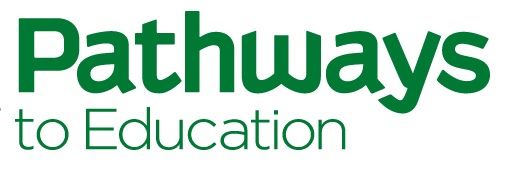From supporting students at Pathways Winnipeg over the past ten years, Tracy Rose-LaPorte knows she’s been a part of the growth of a program that works. “A lot of students have said that if it weren’t for Pathways, they wouldn’t have graduated,” Tracy shares. But even if she didn’t work at Pathways, she would’ve still seen the positive impact firsthand—not just in the community, but right at home.
Tracy first heard about the Pathways Program when the Winnipeg location opened in 2010 and sent her a flyer. Her son was about to enter Grade 9, and she signed him up for the program because she wanted to see him thrive in school. She met her son’s dedicated Pathways support worker, Elaine Dukuly, who has since become Pathways Winnipeg’s Program Director. Two years later and with Elaine’s encouragement, Tracy joined the team as a Student Parent Support Worker to help other youth like her son. “I was already there as a parent and a volunteer, and I thought it would be amazing to give back to the community where I grew up as a child.”
Her experiences as a parent helped her build connections when meeting with families in her community to register students for the program location. Working directly in the local middle school at the time, she supported Grade 8 students to help them transition into high school. “We found that the change was a huge barrier for a lot of our youth in Winnipeg’s North End, where they weren’t able to continue their education after Grade 8.”
By being a trusted voice of guidance for students, it’s a barrier Tracy has helped many young people in her community overcome. In her role, she supports students’ academic success and personal development by providing life skills training, coping strategies, and social activities to foster a sense of connectedness. However, one of the most personally impactful experiences for Tracy has been engaging students in Indigenous cultural learnings through land-based education.
Over the years, Tracy and the Pathways Winnipeg team have organized many trips for youth to participate in pipe ceremonies at sweat lodges and hikes to harvest traditional medicines like sage for smudging circles. Due to the harmful legacy of the Residential School System, it’s the first time that many young people in the community had the opportunity to connect with their ancestral grounds, an experience that Tracy understands. “It’s really important to provide land-based learning for these young people because some of them wouldn’t have access otherwise,” she emphasizes. “I never grew up with it myself because my mother was put into a residential school, which disconnected us from our culture. Now, I’m relearning it with them, which is amazing.”
Since starting her career with Pathways, Tracy has seen both her sons graduate from the program, one of whom has now returned as a tutor. This full-circle journey is not uncommon in Tracy’s experience. The team has hired alumni as ambassadors to mentor younger students and teach life skills that will support their path after high school, like setting up their bank accounts and IDs. “It helps youth that otherwise wouldn’t have the chance to gain these experiences necessary for employment,” Tracy explains.
The passion for taking social action is a quality that Tracy and the Pathways Winnipeg team actively instill in students. The team is currently organizing the return of their first youth-led conference since the pandemic. The conference brings together a hundred students to discuss the barriers present in the North End community, where youth share their insights on what they can do collectively to help solve these challenges.
For Tracy, it’s rewarding to know that she’s supporting the future leaders in her community. Through the partnerships that Tracy and the rest of the Pathways Winnipeg team have established, students take a course to explore different career avenues and tour a variety of universities, colleges, and vocational schools. Whatever the student’s dreams are, Tracy is there to help them plan concrete steps to reach them. All the individual connections she’s fostered throughout her Pathways journey are making a difference—for the students and the wider community: “We’ve noticed that over the past decade, a lot of our students have gone on to post-secondary or trade schools. And been successful—it’s amazing to see them be able to give back to the community.”
